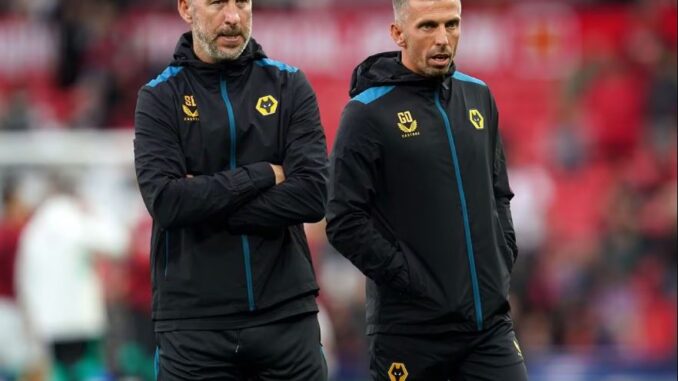
From their playing days together at Queens Park Rangers, Shaun Derry knew Gary O’Neil was destined to be a manager.
With a five-year age gap between the pair, the players were at very different stages of their careers. O’Neil was 30 and still had a number of years left as a player, while Derry was older and coming towards the end of his time on the pitch.
In fact, O’Neil and Derry had very little time together at QPR before the latter moved on, yet in that short time, the veteran could see a future manager in his midfielder counterpart.
It took O’Neil another nine years to get his first job as a first-team head coach—still incredibly early in his coaching career—but Derry spotted the signs early.
“When we first met, I was a young player at 22, and he was even younger at 17, so probably not so far back as our time at Portsmouth,” Derry said when asked if O’Neil showed signs of becoming a manager when he was a player.
“But definitely at QPR. I was coming towards the end of my career and Gary was 30, and he was very meticulous, organised and diligent in the way he approached his training. “You could tell he was a guy who listened a lot and took in information unbelievably well.
“Fast-forward A few years ago, when I was the under-23s manager at Palace, he came in and spent some time with me as an analyst, and that was the moment I saw his true potential. The work he was doing for me at Crystal Palace, albeit on a part-time basis, was incredibly detailed. That’s what has impressed all of us; the detail he goes into is really impressive.
“I had some brilliant managers that I worked under and a lot of senior figures in the game. I never had such a young manager like Gary.
“But to see him on the training pitch, giving examples of what he wants it to look like, he still has great quality as a player.
“I can only imagine what it looks like from a player’s perspective when you see your manager being able to do what he’s asking you to do. It’s quite impressive.
“We still like getting out on the pitch and getting involved. We got involved this morning, and it puts a massive smile on our faces because you like to think you can still do it, and then your legs tell you a different story.”
But behind every good head coach are the staff members that make success a reality.
Assistant head coach Tim Jenkins, first-team coaches Derry and Ian Burchnall, and goalkeeping coach Neil Cutler make up O’Neil’s immediate backroom staff.
Woody Dewar came in as an analyst shortly after, but the majority of Wolves’ support staff already employed by the club stepped up into more senior roles when Julen Lopetegui and his large backroom team departed and O’Neil arrived with just days to go before the start of the season.
In the chaos of those dramatic few days Wolves produced a magnificent display at Old Trafford that deserved more than a loss – but the coaches learned more about their new colleagues in the process.
“We came in days before the Manchester United game so we didn’t have the benefit of a pre-season where you can go and meet people at a more relaxed level,” Derry added.
Leave a Reply